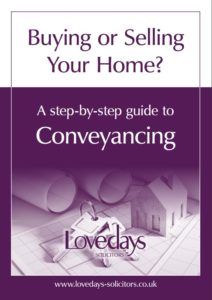- You & Your Family
- Your Job
- Family Law
- Divorce and Separation
- Finances on Divorce
- Dissolution of Civil Partnership
- Separation
- Cohabitation Agreements
- Finances on Breakdown of Cohabitation Relationship
- Prenuptial Agreements
- Grandparents' Rights
- Step-Parents' Rights
- Child Maintenance
- Parental Responsibility
- Paternity Disputes
- Buying Property Jointly
- Probate
- Wills
- Your Property
- Conveyancing
- Partnerships
- Disputes
- Boundary Disputes
- Dealing with Rent Arrears
- Japanese Knotweed Claims
- Landlord and Tenant Disputes
- Landlord Harassment & Illegal Eviction
- Negligence Claims Against Builders & Developers
- New Build Property Disputes
- Noisy Neighbour Disputes
- Personal Debt Collection
- Property Misrepresentations Claims
- Rights of Way Disputes
- Section 21 No Fault Evictions
- TOLOTA Claims
- Tree & Hedge Neighbour Disputes
- Your Business
- About Us
Finances on Breakdown of Cohabitation Relationship
When you live together without getting married or entering into a civil partnership, you are cohabiting in the eyes of the law. If the relationship breaks down, you will then need to work out how to divide your financial assets. It is important to remember that you will not have the same rights as a married couple in this situation, and so it is important to seek proper legal advice in order to come to an arrangement that is fair and legal.
{quote}
Common Misconceptions about Cohabitation
Myth 1: Existence of Common Law Marriage
Many people believe that living together takes the form of common law marriage, but this actually does not exist in UK law. If you are not married or do not have a civil partnership, then your rights are not the same as a married couple, no matter how long your relationship might have been. Common law marriage does exist in some parts of the world, but in the UK, there is little protection for unmarried couples when it comes to dividing finances, parental rights and inheritance rights.
Myth 2: Financial Consequences Similar to Divorce
There is a myth that suggests that cohabiting couples will face the same financial consequences as a divorcing couple when they split up, but this is not the case. Cohabiting couples will have to work out what happens to their finances, but they do not have the same rights as those dissolving a legally recognised relationship unless you have something in writing, such as a cohabitation agreement. You are not automatically entitled to a share of any pensions, savings held in individual names or inherited money. You are also not entitled to spousal support from your ex-partner, except for child maintenance.
Myth 3: Property Rights in Cohabitation
If a property is solely owned by one member of a cohabiting relationship, then the other partner has no automatic right to a share of the property, even if they have been contributing to the cost of the mortgage or household bills. If the property is jointly owned, you will have to agree on what happens to it if you do not have a pre-existing agreement, and you may be left living with each other until an agreement can be reached.
Myth 4: Intestacy Rules Favour Cohabiting Partners
If a partner dies without leaving a will, then their husband or wife will usually inherit their estate under the rules of intestacy. However, this is not the case when it comes to cohabiting couples, and so if you are not married or in a civil partnership and do not have a legal will in place, you will not inherit on the grounds of intestacy. It is possible for an unmarried partner to make a claim for financial provision from a deceased partner's estate if you were living together for two years immediately before the death, but this can be a lengthy and complicated process and still may not provide you with anything.
{quote}
Financial Consequences of Relationship Breakdown
Legal Protections for Cohabiting Couples
Currently, there is very little legal protection for cohabiting couples as there are no automatic rights in place. Many couples are now choosing to put together a written cohabitation agreement in order to protect their interests, as this can be used when a couple separates. Fathers will only be considered to have parental responsibility in the eyes of the law if they are named on the birth certificate of the child, however you may still have a legal obligation to provide child support even if you do not have parental responsibility.
Division of Assets and Property
When a cohabiting couple parts ways, they will need to divide their assets and property. Unless a written agreement is in place, this will usually rely on whose name is attached to each asset. Property, savings and other assets will all revert to the sole owner. You will not be able to claim capital or maintenance against the other person.
If anything is jointly owned, then you will need to agree as a couple how you wish to divide it up. Legally, any assets which are held jointly will be divided in accordance with their legal ownership, but one party may want to try and make a claim for a larger share if they feel their contribution is not reflected in the legal ownership.
Challenges in Proving Equitable Interest
Equitable interest is a financial benefit that arises from having an interest in a property but no legal title exists. This might occur if one partner has provided funds towards a property but does not have their name on the title deeds or mortgage. In order to make a claim for this, it will be necessary to prove that there is an equitable interest which is not always easy to do without a written agreement or declaration of trust.
Legal Options and Measures
Separation Agreements and Cohabitation Agreements
When a relationship is new, most people do not want to think about its potential end, but putting a separation or cohabitation agreement together can save a lot of heartache if the worst happens. These are written agreements that detail matters relating to finances, children and property, as well as establishing ownership of assets and can be used if you split up, die or become ill.
Dispute Resolution: Mediation and Arbitration
When separating, it may be necessary to seek some form of dispute resolution. Processes such as mediation and arbitration can help couples reach an agreement that is both fair and legal using neutral parties to help negotiate or even make the decisions for you after reviewing all of the evidence. An agreement reached through mediation is not legally binding, and so you will need to put together a declaration of trust or consent order at the end of it. An arbitrator will make what they believe is the best decision for you, and this will be legally binding.
Court Intervention: Risks and Costs
In some cases, you may want to refer the matter to court. The Trusts of Land and Appointment of Trustees Act 1996 (TOLATA) provides a legal framework for resolving disputes relating to cohabiting parties and property ownership when there is no formal written agreement. The court will consider each party’s evidence and contributions and make a ruling based on the principles of fairness and equity.
This can be a very expensive route and there are no guarantees that you will get the outcome that you are hoping for. If a claim is deemed unjustifiable, defended where it should have been conceded or no reasonable offer is made, then you may find that you are required to pay for the legal fees of your partner as well as your own.
{quote}
Impact on Children and Parental Responsibilities
Parental Responsibility and Unmarried Parents
All mothers and fathers have parental responsibility, which relates to providing a home for your child as well as protecting and maintaining them. A mother automatically has parental responsibility from birth, but a father will only have this if they are married to the mother or are listed on the birth certificate. Parental responsibility makes you responsible for the welfare of the child even if they do not live with you, but it does not automatically give a parent the right to see a child.
Parental responsibility is a shared right and does not give one parent priority over another. In the event of a relationship breakdown, it is important to come to fair and reasonable agreements over the care and welfare of the child, keeping them at the centre of all considerations.
Custody and Maintenance Issues
The issue of child custody and maintenance is the only area where married and cohabiting couples have the same rights. This is because the best interests of the child should come above the status of their parents’ relationship.
Custody will decide where a child lives, who they live with and how often they will see either parent. When a couple separates, child maintenance will be determined by the Child Maintenance Service to ensure that parents contribute to the welfare and upbringing of their child.
Conclusion
Cohabiting couples sadly have very few legal rights when they decide to separate. It is therefore a good idea to seek professional legal advice from Lovedays Solicitors. Whether it is drawing up agreements at the start of your relationship or helping you to bring one to an end, we can offer expertise in a range of different areas to help you through the process.
{quote}
Frequently Asked Questions
In a property dispute, cohabiting couples have very few rights, and legal decisions will usually be made based on who owns the property and not who lives in it or contributes to its upkeep.
Putting a cohabitation agreement in place can help to protect your financial interests. This is a written agreement signed by both parties outlining who owns each asset and how things should be divided if you decide to separate.
If you do not have an agreement in place, a cohabiting couple will need to decide how to split their finances. One partner does not have a right to make a claim for another partner's finances, and so it should be divided equally, or taken by the person whose name is on the asset.
Get Support Today
Whether it is drawing up agreements at the start of your relationship or helping you to bring one to an end, we can offer expertise in a range of different areas to help you through the process.

Free Guide
If you don’t know your leasehold from your freehold, then get our Free Conveyancing Guide. It contains details about the steps you will need to take with any property transactions. The Guide giving you detailed guidance on what your lawyer will be doing for you and what to look out for.


Lovedays Solicitors, Brooke-Taylors Solicitors, Potter and Co Solicitors and Andrew Macbeth Cash and Co Solicitors are the trading names of Derbyshire Legal Services Limited which is a company registered in England and Wales under company number 08838592. Registered office Sherwood House, 1 Snitterton Road, Matlock, Derbyshire, DE4 3LZ.
Authorised and Regulated by the Solicitors Regulation Authority under SRA ID number 637916.
-
01629 56660
-
This email address is being protected from spambots. You need JavaScript enabled to view it. -
Sherwood House
1 Snitterton Road
Matlock
Derbyshire
DE4 3LZ
© Copyright 2019 Derbyshire Legal Services Limited | Website by WebWorks